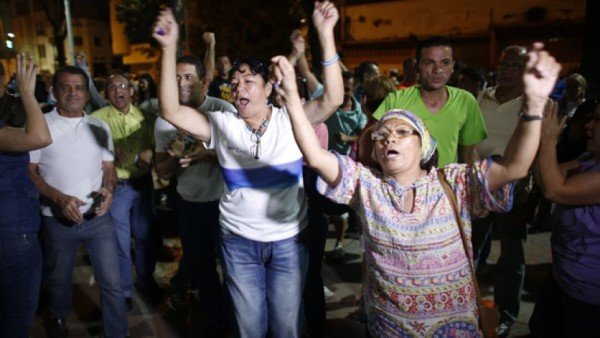Venezuela’s opposition coalition has won a majority of seats in the National Assembly, overturning nearly two decades of dominance by the Socialists of President Nicolas Maduro.
Five hours after polling ended, the National Electoral Council announced the opposition had won 99 seats.
President Nicolas Maduro has admitted defeat, recognizing “these adverse results”.
It is the worst-ever defeat for the leftist movement founded by former leader Hugo Chavez in 1999.
The Socialists have gained 46 seats, with another 22 yet to be declared.
Results arrived much later than expected, five hours after polls closed. Fireworks erupted over the capital, Caracas, soon after.
Among the campaign issues were chronic food shortages of staples – such as milk, rice, coffee, sugar, corn flour and cooking oil.
Venezuela has been hit hard by the continuing low price of oil, its main export. It also has the continent’s highest inflation rate.
President Nicolas Maduro has blamed the situation on an “economic war” waged by the opposition.
“We have come with our morals and our ethics to recognize these adverse results, to accept them and to say to our Venezuela that the constitution and democracy have triumphed.
“We have lost a battle today, but the struggle to build a new society is just beginning,” Nicolas Maduro, Venezuela’s president and head of the United Socialist Party of Venezuela, added.
Henrique Capriles, a leading opposition figure in the Democratic Unity Roundtable and a former presidential challenger, tweeted: “The results are as we hoped. Venezuela has won. It’s irreversible.”
Jesus Torrealba, opposition coalition chief, said: “Venezuela wanted a change and that change came. A new majority expressed itself and sent a clear and resounding message.”
The opposition alliance, made up of centrist and conservative parties, is confident of ultimately taking at least 112 seats after 16 years of socialist control.
The results also give stronger momentum to the opposition should it wish to call a referendum on Nicolas Maduro’s future. This could take place only when his presidency reaches its halfway point in April next year.
However, under Venezuela’s presidential system the United Socialist Party of Venezuela (PSUV) will still be a powerful force, as it controls many municipalities.
The next presidential election is due in April 2019.
